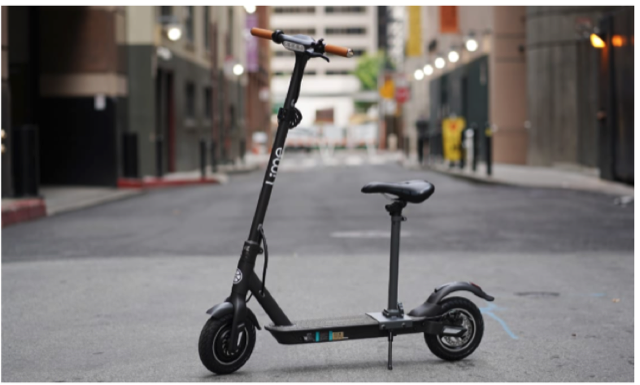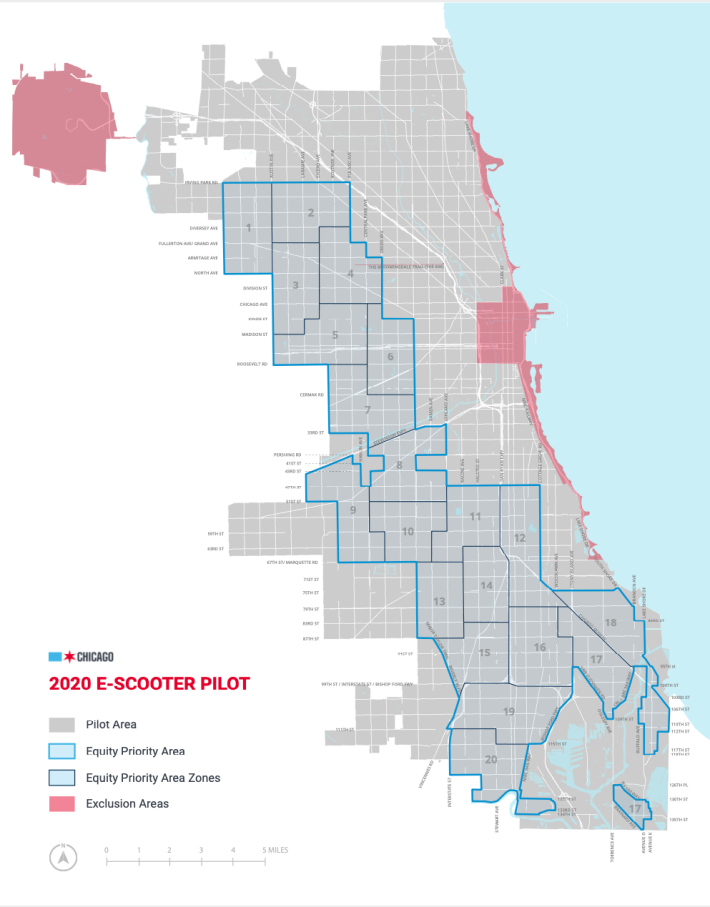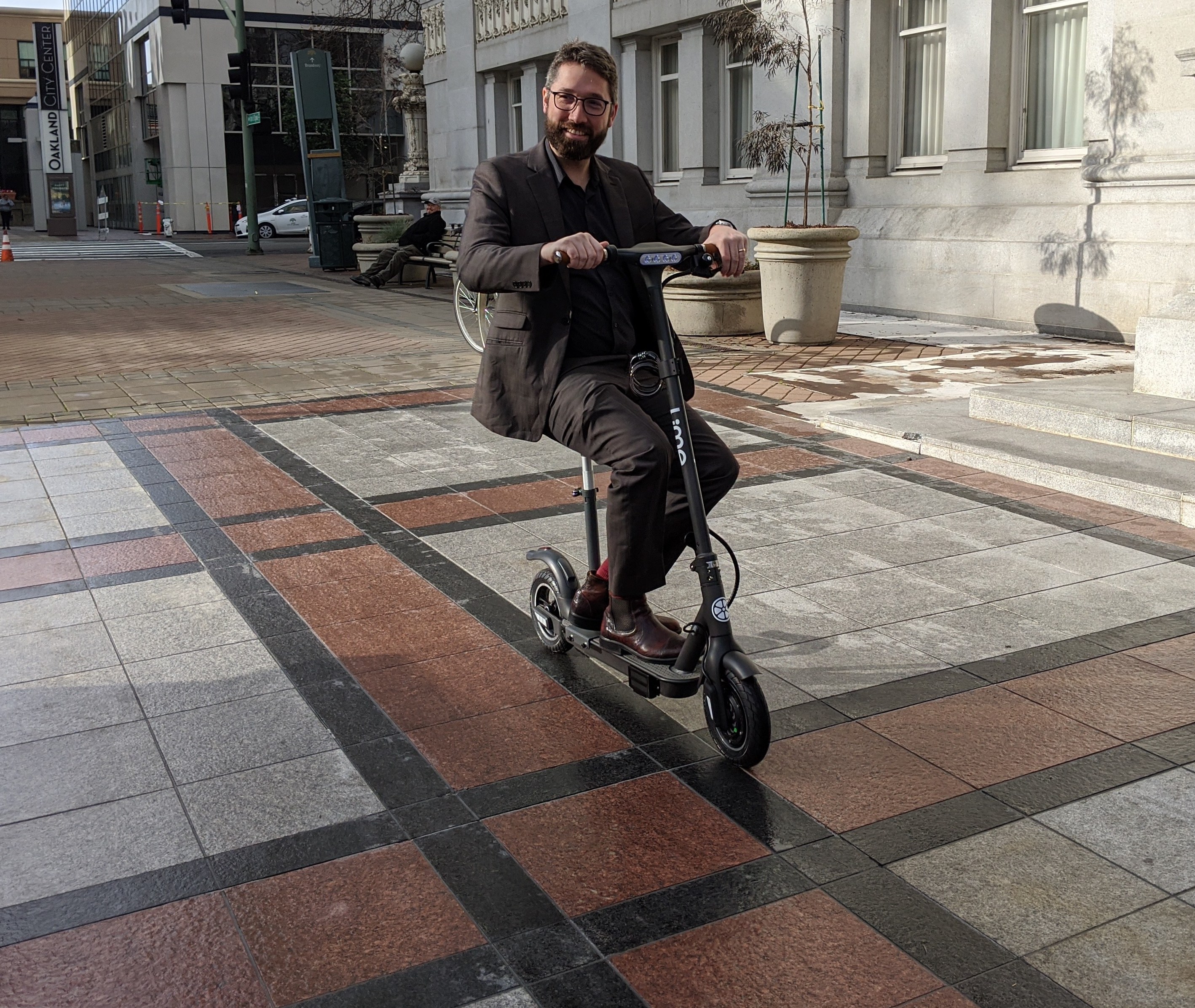The second pilot of the Chicago E-scooter program began on August 17, with the devices available citywide, except for downtown and the lakefront. Bird, Lime, and Spin are the vendors this year, and each company is allowed to deploy up to 3,300 vehicles. They offer a sweat-free option for car-free transportation, and can be used for first- and last-mile trips to and from transit stations. And, along with bicycles and the new electrical-assist Divvy bikes, scooters may also appeal to residents who are avoiding transit during the COVID-19 pandemic or looking for new options for recreation.
As part of the rules of the pilot, the companies’ apps are required to be ADA compliant, and vendor names and phone numbers must be written in braille and raised lettering on every device. It was also recommended that the gadgets emit low sounds to alert visually impaired people to their presence on the street, and the companies were encouraged to provide scooters that are accessible to people with mobility challenges, such as seated models. Last year's pilot included the company Wheels, which only deployed seated models, but they are not participating this year.
In late July I spotted Lime staffer's and a few people from Mayor Lori Lightfoot's office at Horner Park in the Irving Park community. Lime was planning to launch a seated model, which people with disabilities could access by calling a phone number to have one delivered.

I recently spoke with LeAaron A. Foley, Lime's Midwest director of government relations. He confirmed that Chicago would be the second market in which his company will launch accessible scooters, which debuted earlier this year in Oakland, California. In Oakland, 45 scooters were available for community members to reserve for use within 24 hour period.
Lime will market the adaptive scooters in Chicago through the Mayor's Office for People with Disabilities, along with support from organizations like My Block, My Hood, My City; Access Living; the Austin African American Chamber of Commerce; the Roseland Chamber of Commerce; and Equity and Transformation Chicago, Foley said. The company will be hosting roundtables with community members to collect input on the program. Lime will also offering free First Ride Academy educational sessions for people with disabilities as well as non-disabled residents.
The Chicago Department of Transportation, which is helping to oversee the pilot, provided the following responses from Lime to Streetsblog questions about the adaptive scooter program.
When will you begin deploying accessible devices?
Lime adaptive scooters will be available through a direct delivery model for riders to request as early as the week of August 23 [i.e. this week.]
Will you deliver scooters directly to customers, make them available as part of your on-street fleet, or take another approach?
Adaptive scooters are available through a delivery model. Riders will be able to request an adaptive scooter directly from Lime or through one of our community partners. Lime adaptive scooters will not be placed on-street to accommodate demand from riders with disabilities.
How long is the rental period? How much will the service cost?
Lime allows for flexible rentals and will work with community groups and riders directly for rental periods and cost. All riders will benefit from Lime's 50 percent discount for rides that start or end in Priority Areas on the South and West Sides and Lime Access [a discounted membership program for low-income residents].

Will the accessible service cover the entire pilot area?
Yes.
How do you intend to collect feedback about accessible devices?
Lime is working closely with community partners to gain feedback and input on our adaptive scooter program. We will also request feedback from riders with disabilities on their experiences riding with Lime in Chicago.
Follow Imelda March on Twitter at @hcram1.




